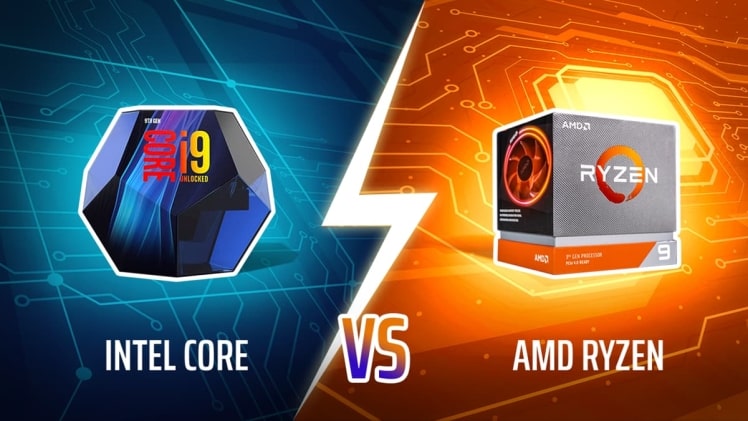In the world of computer hardware, there are only two real competitors for CPUs – AMD and Intel. Even though they’re both great at running computer systems, each manufacturer has a solid camp of fans that are truly dedicated to the cause. This argument is similar to the never-ending Android Vs Apple argument, which means this article may be a lost cause. However, in the name of helping you choose a CPU, we will guide you through AMD and Intel until we have a winner.
Pricing
The cost of CPU for value is one of the most important considerations for buyers, which is why we’re starting here. When it comes to price, AMD tends to be hard to beat, especially when you take into consideration its range of advantages including full overclocking, complimentary software, and the sheer number of cores. As well as offering more customisations, AMD CPUs are compatible with a larger quantity of motherboards.
Recently, Intel has released their Alder Lake range of CPUs, which offers performance without compromising on the price, making it theoretically cheaper than AMD. However, when you take into account the DDR5 and PCIe 5.0 support, a more expensive motherboard is required; making the two chipsets balance each other out in terms of price.
Gaming Performance
When AMD first started, its focus was gaming performance and it dominated heavily over Intel. However, as Intel started to fight back and add more cores and features to their chipsets, they tackled the gaming performance mantel from AMD, especially at the affordable price point and with dedicated GPUs.
If you start looking into the integrated graphics performance, you will find that AMD wins the performance fight, which is perfect for those searching for an AMD Gaming Laptop at Lenovo. If you’re not fussy about having the most incredible graphics for your games, the Ryzen 5 5600G and the Ryzen 7 5700G, are fantastic CPU choices that mean you won’t need to pay extra for a graphics card.
Security
Security is an important factor when choosing a PC, which is why it’s a good idea to take a look at the features of both AMD and Intel. All chipsets can face vulnerabilities that are dangerous because they’re undetectable. However, Intel appears to be targeted by more common threats than AMD, which makes AMD more favourable to researchers and PC enthusiasts alike.
All In the Cores
There are a lot more components we could dissect here, but that’s a task for another day. When it comes to which is better, one way to look at Intel and AMD is the number of cores and threads on offer. Typically, the higher the number, the greater performance you will get out of your computer. When you compare Intel and AMD chip-to-chip, you will find that AMD’s CPUs hold more cores, especially across the same price ranges.
Choosing a winner between AMD and Intel is extremely difficult because the landscape is always changing, and they both dominate in different parts. Choosing the true winner comes down to personal preference, and only you can know what that is.

